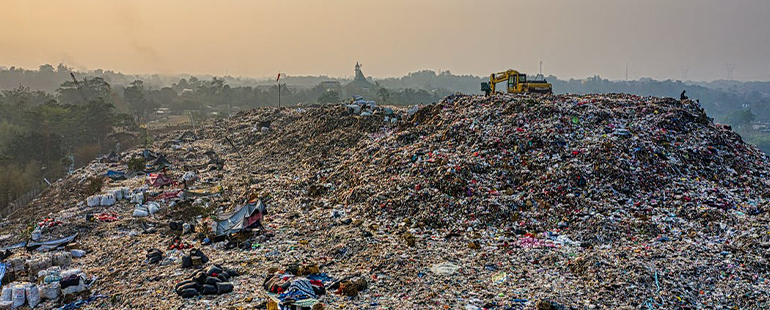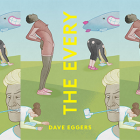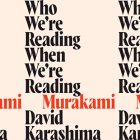The Garbage of Our Time

In June 1946, after returning home from serving on a Navy destroyer in the South Pacific, A. R. Ammons enrolled at Wake Forest University as a general science major, graduating four years later as a biology major with honors. In 1955, Ammons self-published his first book of poems, Ommateum: with Doxology—“ommateum,” the compound eye of arthropods, and “doxology,” a short hymn. Like Ralph Waldo Emerson’s transparent eyeball, the act of seeing for Ammons became akin to prayer, perhaps the only adequate form of worship. What followed the publication of this initial collection was a career of multi-spectral witnessing, in which he repeatedly translated the cultural artifacts of the late twentieth-century into the lexicon of the natural world—a life’s work culminating in the book-length poem Garbage, for which Ammons won a 1993 National Book Award. Nearly thirty years later, the speedy, colon-hinged couplets of Garbage have anticipated the worst conversations one wishes were avoidable: climate change and a non-hyperbolic global destruction.
“[G]arbage,” Ammons writes, “has to be the poem of our time because / garbage is spiritual, believable enough // to get our attention.” The popular iconographies of culture—whatever corporate logos have imprinted their curlicues on the brain—churn themselves to posterity in the wasteland, in this case a trash dump Ammons noticed while driving along I-95 in Florida. Garbage maintains, in its eighteen sections, that our only source of infinity in this secular era is the several heaps of plastic, tires, and bottles that pockmark our vision. A Coke bottle that contains the sublime, Garbage is a poem of cracking jokes into oblivion, a meditation on excess and waste as the defining trait of our species, and an elegy for the future. As unfathomable a temple the trash dump seems, where else is one expected to worship after modernism? And what will grow after the fields burn and the harbor swallows our hometowns? After this razing of our familiar landscapes, new life will thrive in the spaces Ammons renders thrivable with their own cavalcades of trash—but until then, there’s only “so many seeds, and not one will make a / tree, excuse the expression: what of so much // possibility, all impossibility.”
If a trash dump in Florida is the premonitory image, poetry is the action, and “poetry is not logic or / knowledge or philosophy.” Around the spindle, Ammons winds household chores, gossip from his corner of western New York, and Larry Bird’s layups. For inertia, he enjambs most of his lines and mostly refuses full-stops, sped by his characteristic use of colons—a lyrical thinking in which one object is figuratively understood by what it’s stacked against en masse. In his idiom of observation, he finds himself speaking through clichés, making dirty jokes, and using the great Latinate words of scientific discovery. For everything Garbage uncovers about the future and waste, the timeless timestamps humans have made on the earth, Ammons meditates on what one wishes a great poem can accomplish in the era of destruction: “I’ve discovered / at sixty-three that the other thing I’ve wished of // poetry, that it prevent death, has kept me a / little strange.” While poetry did not prevent his death—Ammons passed in 2001 at the age of seventy five—nor will it prevent any death, Garbage seems to me an artifact of continued life.
In the first twelve lines of Garbage, thinking about what information a poem transmits, data encoded in rhythm, Ammons remembers lines from William Carlos Williams’ “Asphodel, that Greeny Flower”:

Ammons pokes fun at these aphoristic, over-quoted lines—yet throughout Garbage, he asks himself this very question: what can poetry accomplish after markings on the page, and does it matter? While I think the answer to this question has changed since 1993, the popular approach to answering it has seemingly depended on ideological categories presumed distinct from one another: Ammons is a nature poet because he writes about nature. At their unlikely best, categorical understandings of poets and their poetry lead to neatly-packaged aesthetic patterns—as if art could fit inside a two-liter and the calories could sustain me. In this new millennium, distinctions between political lyrics and poems ostensibly concerned with anything else have brought about partisan phrases like “identity politics” (read: an attempt at concealing serious prejudices in publishing and industry by way of a purported fear of rhetoric in poetry, as if such a thing were possible). These phrases—none of which would be applied to Ammons due to his race, gender, class, social standing—indicate nothing about the quality of the poem, and attempt to sublimate the hard work of the poet to a series of spectral patterns in the last twenty years of poetry. Garbage is a poem of meaning-making, informed by the politics of environmental destruction, informed by the legislation of our species and our awfully gross habits, informed by the sublimity of meaning-making.
Garbage didn’t prevent the California wildfires in 2018, nor was it cited in the pages of the Green New Deal, yet neither fact indicates to me that the effects of poetry are insulated by their own production. Ammons’ long poem can teach its readers to think about the difference between figurative and rhetorical signposts in language, just as Robert Frost spent his entire career unveiling through those sentence sounds, when the rhetoric of environmental destruction seemed more hyperbolic. Is the world ending in fire or ice, and does it matter? This form of instruction in metaphor depends on the poet as witness to everything, as observing the particular and the cosmic, a tension we lose in categories like “nature poet” or “political poet.” Because environmental destruction is no longer hyperbolic, the “nature poem” must concern itself with a landscape, the colonial forces that stole that landscape, and the neo-capitalist practices that continue to destroy that landscape. The poet that writes lines about and for a community, an ideological cause, or a movement just as equally represents the figurative values of language, of the rhythms a poem demands to be spoken—otherwise we’re dealing in something other than poetry.
For American poetry, Garbage has removed the nature poem from whatever the category “nature poem” inaugurates in the imaginations of readers. Unlike the America that Walt Whitman heard singing, unlike the voices Frost heard arguing behind a door, Ammons returns us to our community of waste-makers. For the nearly thirty years of poetry that have followed the publication of Garbage, Ammons translated that American landscape into a symbology applied by us, a community of trash lovers, everyone who built the temple of garbage as a gesture towards posterity. Ammons writes in the last section: “celestial // garbage is so far the highest evidence of our / existence here,” and again with his particularly discomfiting wit, he points to the making of his poem as a mechanical artifact; Garbage, of course, is evidence that Ammons was here, and my reading his poem is hopeful evidence that I am here too.
Ammons certainly didn’t dismantle the category “nature poem” alone or even as ubiquitously as he hoped—though it is now hard to imagine a poem about a Romantic landscape that’s not immediately built on a heap of excess. How can one read the 2019 anthology Here: Poems for the Planet, edited by Elizabeth J. Coleman, and look for the pastoral? How can one open Black Nature, a 2009 anthology edited by Camille Dungy, and not be reminded that Black poets are rarely discussed as observing what’s idyllic? How can one return to the Georgics and not mourn the earth that Virgil cultivated? Poetry didn’t prevent Virgil’s bees from going extinct, so why do we obsessively ask if poems can make something happen? The answer, if one understands the question altogether too literally, is that, in our slowly dying print culture, poetry is markings on a page. Poetry will not prevent the next earthquake, nor did it prevent Ammons’ death as he jokingly wished. After the markings on the page, a poem becomes a sound in our voices, articulated rhythms to all the other waste-makers listening to me. After all the poems are chanted, isn’t the more difficult question that if poetry makes something happen after the sounds in our voices are heard, what is that something?
This piece was originally published on June 4, 2020.



